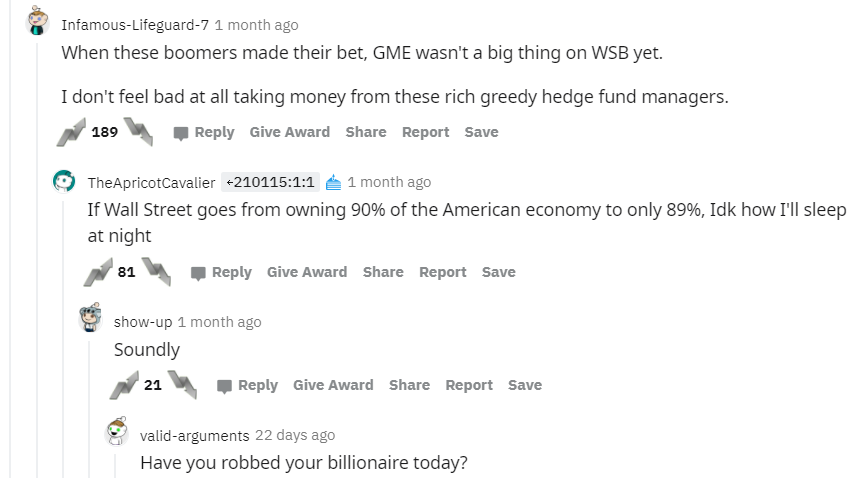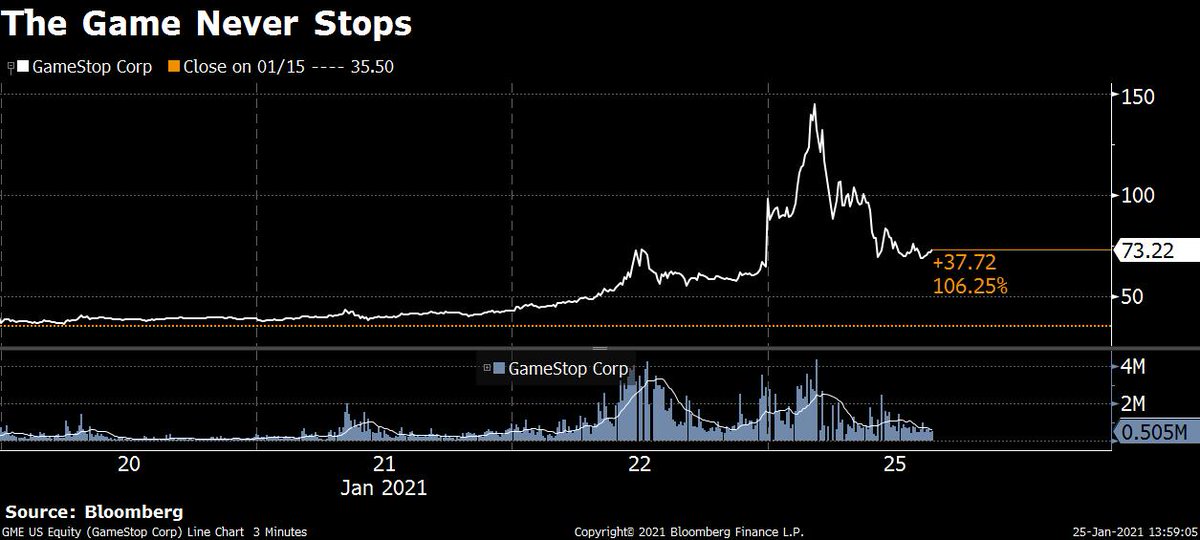
If you could peek inside a bunch of America’s home pantries and refrigerators right now, you’d see:
🧻Towers of paper goods
🍩Loads of comfort food
☕️Caches of upmarket coffee
🍤You might also see a surprising amount of seafood
bloom.bg/3iHVvrJ
🧻Towers of paper goods
🍩Loads of comfort food
☕️Caches of upmarket coffee
🍤You might also see a surprising amount of seafood
bloom.bg/3iHVvrJ
Compared to a year earlier, in the four weeks ended Dec. 27th, sales of:
❄️Frozen seafood are up 26%
🐟Fresh seafood are up 25%
🥫Consumer packaged goods are up 6%
It’s been that way since the start of the pandemic bloom.bg/3iHVvrJ
❄️Frozen seafood are up 26%
🐟Fresh seafood are up 25%
🥫Consumer packaged goods are up 6%
It’s been that way since the start of the pandemic bloom.bg/3iHVvrJ
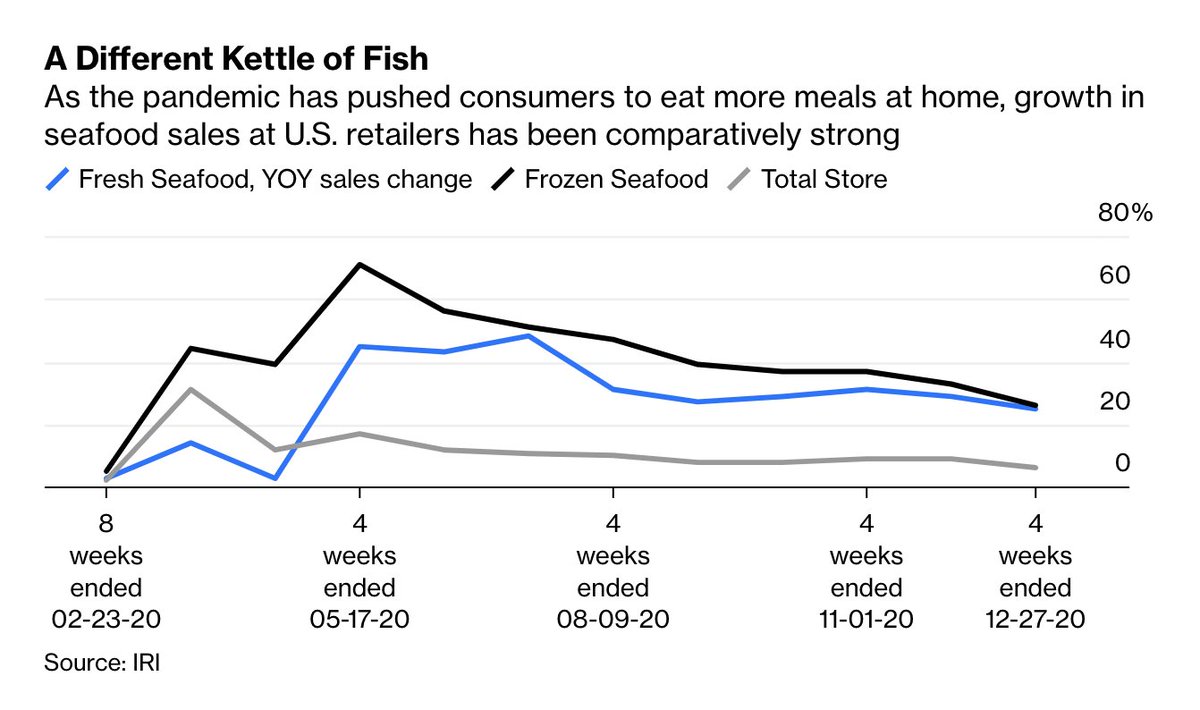
It's an example of the weird ways the pandemic continues to change our habits. Typically, most seafood spending is done at restaurants.
In 2017, U.S. diners spent $69.6 billion on fish at restaurants, compared to $32.5 billion spent at stores bloom.bg/3iHVvrJ
In 2017, U.S. diners spent $69.6 billion on fish at restaurants, compared to $32.5 billion spent at stores bloom.bg/3iHVvrJ

But with many white-tablecloth dining rooms closed or operating at reduced capacity during the pandemic, shoppers who perhaps rarely cooked seafood before have decided to put seared salmon, shrimp scampi and steamed lobsters on their own kitchen tables bloom.bg/3iHVvrJ 

Grocers have moved to adapt.
Whole Foods Market, for example, has expanded its frozen selection to include value packs of halibut, barramundi and arctic char. It has also added black cod and farm-raised striped bass to fish counters at most of its stores bloom.bg/3iHVvrJ
Whole Foods Market, for example, has expanded its frozen selection to include value packs of halibut, barramundi and arctic char. It has also added black cod and farm-raised striped bass to fish counters at most of its stores bloom.bg/3iHVvrJ
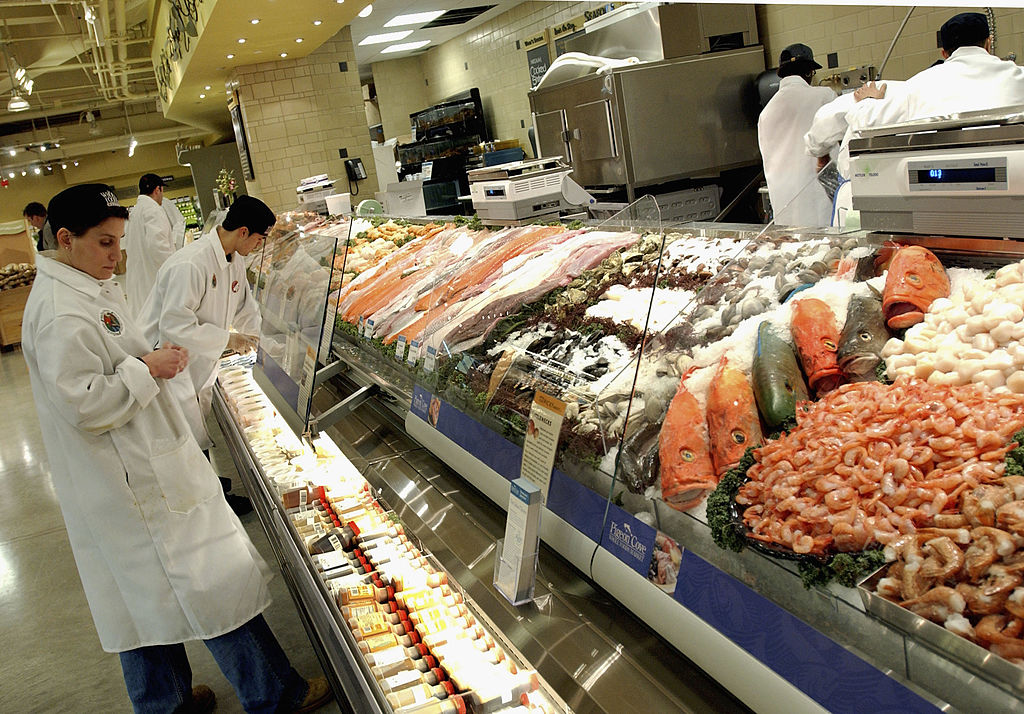
Leaning into the seafood craze is a tricky balance for retailers.
Mark Murrell, CEO of Get Maine Lobster, saw sales increase more than 600% in 2020.
But when he needed more freezer space, he decided to rent it, in case things change bloom.bg/3iHVvrJ
Mark Murrell, CEO of Get Maine Lobster, saw sales increase more than 600% in 2020.
But when he needed more freezer space, he decided to rent it, in case things change bloom.bg/3iHVvrJ

The shift from restaurants to home kitchens has not been anything close to a one-for-one trade for the seafood industry.
Revenue at commercial fisheries fell 29% from their five-year average in the January through July period bloom.bg/3iHVvrJ
Revenue at commercial fisheries fell 29% from their five-year average in the January through July period bloom.bg/3iHVvrJ
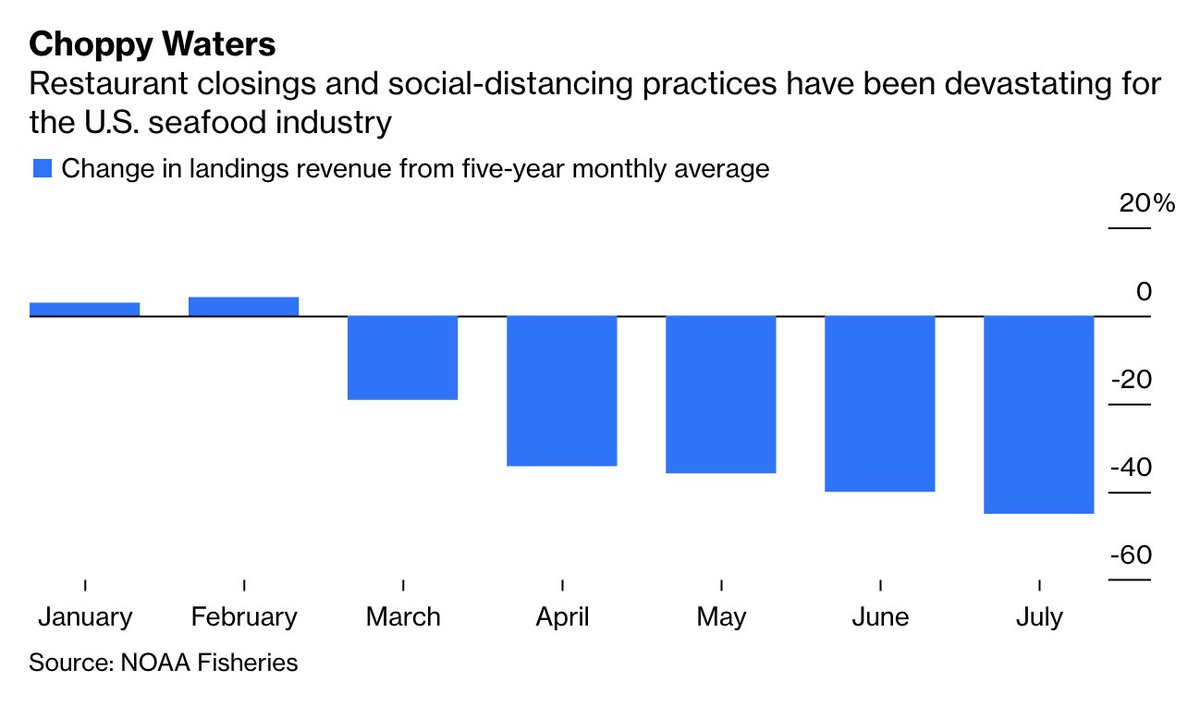
Covid-19 has rattled the seafood industry in myriad other ways, too:
🐟Social distancing and quarantines affect work shifts and workstations
🐟Struggling restaurants mean the seafood industry has added $2.2 billion in debt since the onset of the pandemic bloom.bg/3iHVvrJ
🐟Social distancing and quarantines affect work shifts and workstations
🐟Struggling restaurants mean the seafood industry has added $2.2 billion in debt since the onset of the pandemic bloom.bg/3iHVvrJ
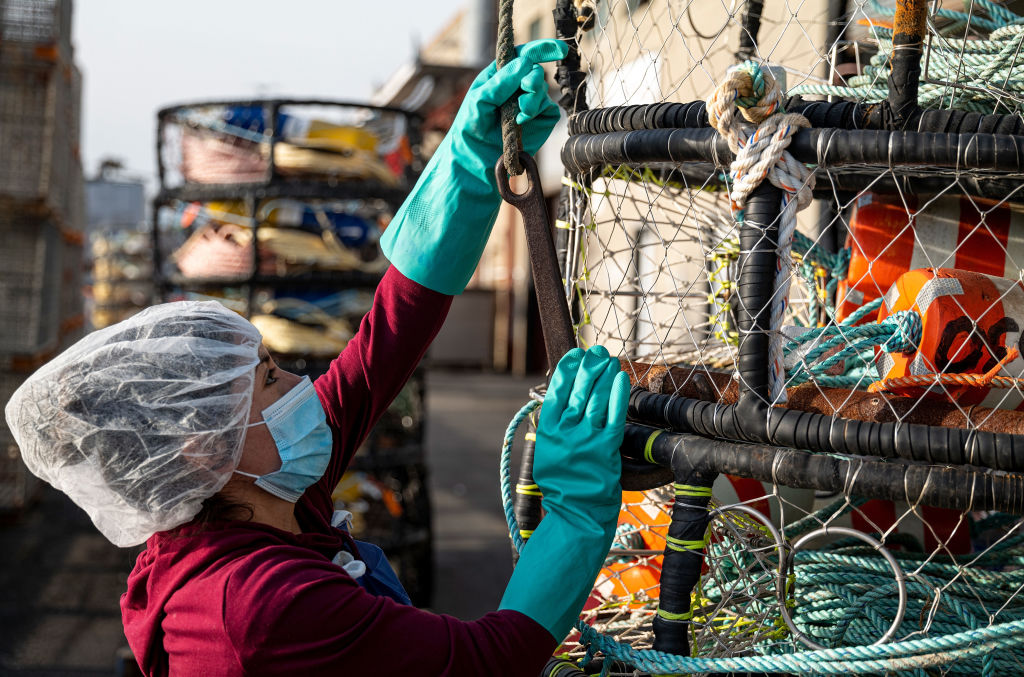
But what’s happening at grocery stores offers reason for long-term optimism for the wider seafood industry.
The seafood bounce is not fading almost a year into the pandemic, suggesting many consumers are making a bona fide habit of eating fish at home bloom.bg/3iHVvrJ
The seafood bounce is not fading almost a year into the pandemic, suggesting many consumers are making a bona fide habit of eating fish at home bloom.bg/3iHVvrJ

🦀 Have you been cooking more seafood at home since the pandemic started?
• • •
Missing some Tweet in this thread? You can try to
force a refresh

